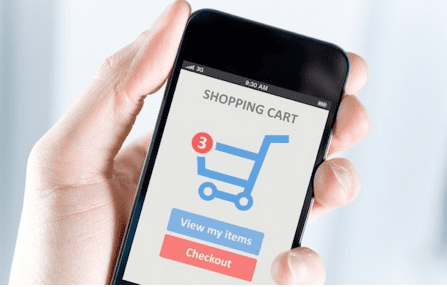Ensure your mobile app has these 7 features to improve user experience and boost ecommerce revenue
Giant ecommerce companies are now focusing on improving end-user experience on mobile devices, providing a strong technology infrastructure via cutting-edge mobile applications.
Mobile comprises of 34% of all ecommerce transactions worldwide, and this figure is expected to grow to over 50% in 2016. What is more, 85% of consumers today prefer a mobile application over a mobile website. Clearly there are big opportunities here. The biggest challenge any ecommerce business faces is to stand out in the competition with a stunning and interactive app that engages and retains buyers at every level.

With this in mind, here are some essential features that your ecommerce mobile app should include to give it a competitive edge and deliver excellent user experience.
1. Promote Customization
For any ecommerce business, a major challenge is to provide an excellent user experience within the mobile app. When a user downloads a shopping app, they look for seamless navigation, personalization, and a hassle-free experience. Therefore, it is vital to make the user experience as engaging and interactive as possible. Your app should include key customizable features that align with user needs and preferences, building a strong relationship.
2. Make On-boarding as Simple as Pie
For any mobile app, getting the users on-board in a seamless way is one of the most critical components. Minimalistic design, intuitiveness, and personalization makes on-boarding as easy as possible. Your app should welcome your users with a philosophy of what your brand is all about, followed by presenting a range of interactive features. Keep the design really simple and neat, so that your users are not put off. Right from registering and signing up to checkout and online payment, everything should be streamlined and extremely simple.
3. Simple and Uncluttered Navigation
When you build an ecommerce mobile app, one of the vital things to consider is the content and screen size. Since mobile display screens have limited space, it is important to ensure that your app and its content do not appear crammed up on the device. So, designing a simple and uncluttered layout is crucial. It should deliver seamless navigation and display your brand or products in the most impressive manner. A responsive design is the best solution, which automatically fits into any screen size and resolutions, and renders an immersive experience.
4. Simple Registration and Instant Information at Fingertips
Most consumers are not fond of filling out long registration forms or forced social login to sign up. There are many apps that ask a lot of information up front to get you registered. Trust me, people rarely prefer such apps. Amazon, a global mega ecommerce brand, has always kept it simple, right from sign up to checkout. The mobile app directly takes users to the main page, and they do not need to register until checkout. Additionally, they provide simple registration – sign up with an email id or mobile number. During checkout, the app also provides the option to save user information for future use or reference. This is an important feature to keep your users hooked up and get them through the checkout process.
5. Analytics
Apart from delivering superior user experience, the core objective of an ecommerce mobile app is to earn revenues. Therefore, analytics is one important feature that your app should have. Understanding user behavior and buying pattern on your app is of utmost importance. Session time, cost of conversion, click-through rate, and accessing custom fields, all provide information about consumer behavior, leading to higher revenue streams.
6. Push Notifications
Some of the most successful ecommerce mobile apps are the ones that have incorporated Push Notifications into their list of features. Push notifications tend to inspire immediate action, and therefore, time-sensitive marketing content like exclusive promotions, special offers, and new product launches do great with this feature. You can pair up this feature with analytics, and you would see a significant boost in sales in no time.
7. Authoritative and Relevant App Content
The more concise the content, the better it is. Less is more. A seller rarely wins a consumer with pushy marketing content. Therefore, it is crucial to show that you can be trusted without over-dosing your consumers with information on an app. To put it simply, customers prefer crisp information that is relevant, convincing and authoritative. Provide appropriate content and keep the USP included.
Conclusion
An ecommerce mobile app should aim at providing an immersive and unique experience that makes online shopping a much simpler and seamless process. At the same time, it should include features that drive sales and boost revenues for your business.

Steven Parker is an app developer at
Mindinventory He writes on mobile technology, app development and mobile app marketing. You can follow him on
Twitter.




 Steven Parker is an app developer at
Steven Parker is an app developer at 


